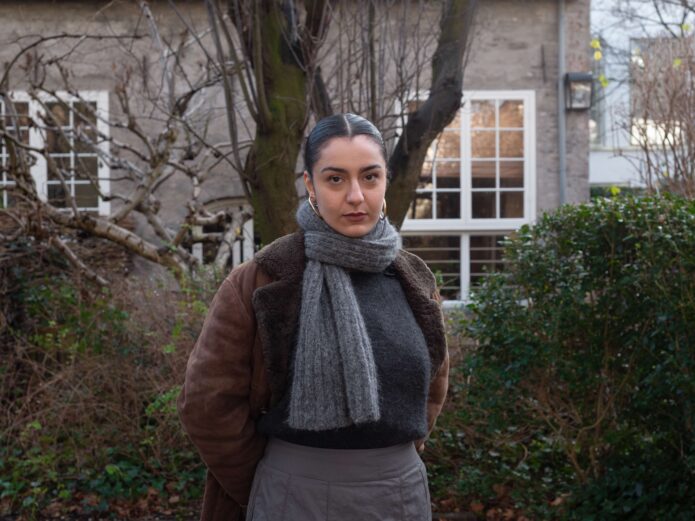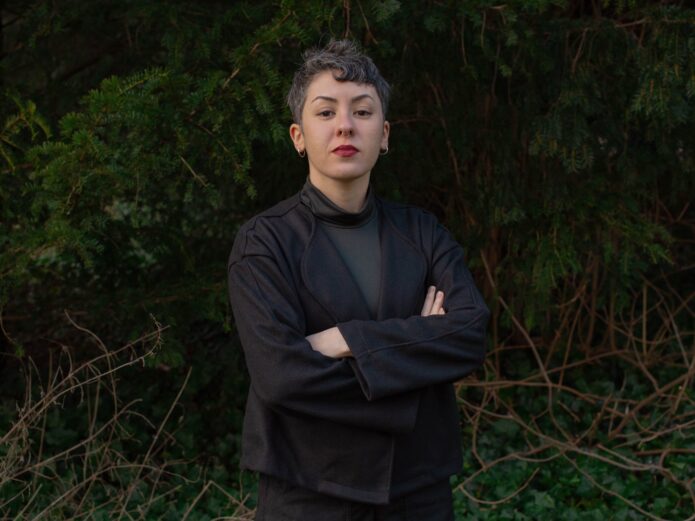 Monument Zero. Image courtesy of Meshkat Talebi
Monument Zero. Image courtesy of Meshkat Talebi 8 Mar –
20 Apr 2025
Exhibition: Monument Zero
From 8 March to 20 April, Framer Framed presents the first installment of Monument Zero, an exhibition and publication initiated by artist Katayoon Barzegar. This multi-faceted project draws on scarce archival materials from the 1979 International Women’s Day protests in Iran to build a bridge between past and present feminist struggles, while envisioning alternative futures through collective artistic practice.
Monument Zero emerged from International Women’s Day on 8 March 1979 in Iran. The archival materials that form the starting point depict six days of protests, sit-ins, and conferences that began on this day in Tehran. These historical objects have been preserved by the mercy of their creators, who were present during the 1979 protests, and are scattered across personal and public holdings worldwide. Throughout the past 46 years, the history of the International Women’s Day protests has faced several deliberate attempts at erasure. Therefore, by bringing together the scarce materials that depict this forgotten history, Monument Zero counters historical erasure and explores the preservation of political struggles through collective artistic practice.
The exhibition features an audiovisual installation of a stone sculpture and video piece, marking the first chapter of an ongoing collaboration between visual artists Pegah Pasalar and Behshad Tajammol. The opening on 8 March also launches of the project’s eponymously titled publication, edited by Niloufar Nematollahi and Jose Rosales. It includes previously untranslated historical materials presented here in English for the first time, alongside contributions from writers Shirin Karimi and Elaheh Soroushnia, and visual essays by artist Meshkat Talebi.
Opening
Join us on 8 March at 17:00 for the opening and book launch of Monument Zero. Please register here.
Additional Contributors
Behshad Tajammol (1992, Arak) is a multidisciplinary artist whose practice is rooted in the exploration of memory, temporality, and spatial perception. Through sound and video interventions that explore the fluidity of time, Tajammol navigates the dynamic interplay between sociopolitical structures and lived realities, thus positioning her practice at the intersection of art, politics, and human experience.
Pegah Pasalar (1992, Tehran) is a visual artist and filmmaker, currently based in New York. Their antidisciplinary practice explores the intersections of displacement, language, memory, and history. By reframing overlooked histories and uncovering their interwoven connections, Pasalar’s practice researches possible alternative futurity.
Shirin Karimi (1983, Shiraz) is a historian and translator based in Iran. Having translated several ground-breaking works into Persian, as well as seminal essays such as those of gender theorist, Afsaneh Najmabadi, her most recent and widely acclaimed book revolves around Mohammad Mosadeq’s political life before he became Iran’s prime minister. Currently, Karimi is writing about Qamar-ol-Moluk Vaziri, the first Iranian female vocalist to perform publicly without a veil.
Jose Rosales (1988) is an independent researcher.
Elaheh Soroushnia (1987, Gorgan) is a feminist activist and researcher currently based between Iran and Germany. Soroushnia’s research deals with the history of social movements through the question of gender, while her past writings have reckoned with the politics of memory and the construction of revolutionary space. Examining reproductive policies, her current research navigates manifestations of biopolitics in the lived experiences of migrant women.
Meshkat Talebi (1998, Tehran) is a Netherlands-based visual artist whose practice emerges from the photographic image. Thinking through photography, and in conversation with other mediums such as sound and installation, Talebi navigates the intersections between personal and collective memory.
Do you also think art should be free and accessible? Please consider supporting us with a donation when registering or by becoming a Framer Framed Friend.
This event may be photographed and filmed. Kindly let us know in advance if you prefer not to have your picture taken.
The audio-visual installation of Monument Zero was funded by Mondriaan Fonds. The publication was supported by Cultuur Fonds and Mondriaan Fonds and published by Casco Art Institute: Working for the Commons.
Iran / Book Launch / Art and Activism / Middle East /
Agenda
Book Launch: Monument Zero
Publication launch on the occasion of International Women’s Day.
Network

Niloufar Nematollahi
Curator
